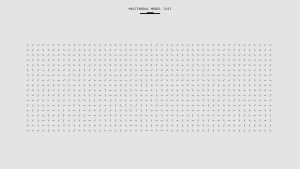Legal Impacts of Social Media on Jury Trials
In today’s digital age, social media has become an integral part of our daily lives. From connecting with friends and family to staying updated with the latest news and trends, social media platforms have revolutionized the way we communicate and share information. However, with the rise of social media, the legal landscape has also been greatly impacted. This is especially evident in the realm of jury trials, where social media has raised numerous legal concerns and implications. In this article, we will explore the legal impacts of social media on jury trials and the challenges it presents for the legal system.
The Use of Social Media in Jury Selection
The selection of jurors is a crucial part of the judicial process, as they are responsible for determining the guilt or innocence of a defendant. Traditionally, potential jurors were selected through random sampling from a pool of citizens. However, with the advent of social media, attorneys and jurors have started using these platforms to gather information about potential jurors.
While social media can provide insights about a person’s beliefs, attitudes, and interests, it can also lead to biased jury selection. Attorneys may use this information to strike out potential jurors based on their political affiliations, race, or other discriminatory factors. This can greatly impact the fairness and impartiality of the jury, which is crucial for a just trial.
Social Media and Contempt of Court
Social media has also presented challenges in maintaining the integrity of jury trials. Jurors are expected to remain unbiased and not be influenced by external sources. However, with the access to social media platforms during the trial, there is a risk of jurors being exposed to information or opinions that could sway their decision.
In some cases, jurors have been found in contempt of court for sharing information or discussing the trial on social media. This not only violates the rules of the court but also undermines the fairness of the trial. Additionally, lawyers and judges are also at risk of being exposed to information that could potentially influence their decision-making process.
The Rise of Jury Misconduct Due to Social Media
Social media has also been associated with an increase in jury misconduct. Jurors are prohibited from conducting their own research or communicating about the trial with anyone outside the jury. However, with the ease of access to information through social media, jurors may be tempted to conduct their own research or discuss the case with their network. This could lead to a mistrial or verdict tampering, resulting in a miscarriage of justice.
In a high-profile case, a juror was found to have contacted a defendant through Facebook during the trial. This not only led to a mistrial but also raised serious questions about the impact of social media on the legal system.
The Admissibility of Social Media Evidence
Social media has also raised questions about the admissibility of evidence in court. With the increase in the use of social media, it has become common for attorneys to present social media posts, messages, and photos as evidence. However, this evidence must meet the standard of relevance and authenticity, just like any other form of evidence.
In some cases, there have been challenges in proving the authenticity of social media evidence, as it can easily be manipulated or taken out of context. This has led to concerns about the reliability and credibility of social media evidence in court.
Protecting the Integrity of Jury Trials in the Digital Age
While social media has presented numerous challenges in the realm of jury trials, steps have been taken to protect the integrity of the legal system. Courts have implemented stricter rules for jurors, including prohibiting the use of social media during the trial and conducting background checks on potential jurors.
Moreover, judges and attorneys have also become more vigilant in monitoring potential juror misconduct and addressing any violations that may occur. Additionally, there have been calls for jury instructions to include guidelines on social media usage, to ensure that jurors are aware of the possible consequences of their actions.
In Conclusion
The rapid growth of social media has resulted in numerous legal challenges in the context of jury trials. From impacting jury selection to presenting challenges in maintaining the integrity of the trial, social media has forced the legal system to adapt and evolve. As we continue to navigate this ever-changing digital landscape, it is crucial for the legal system to remain vigilant and address any issues that may arise, to ensure a fair and just trial for all.










